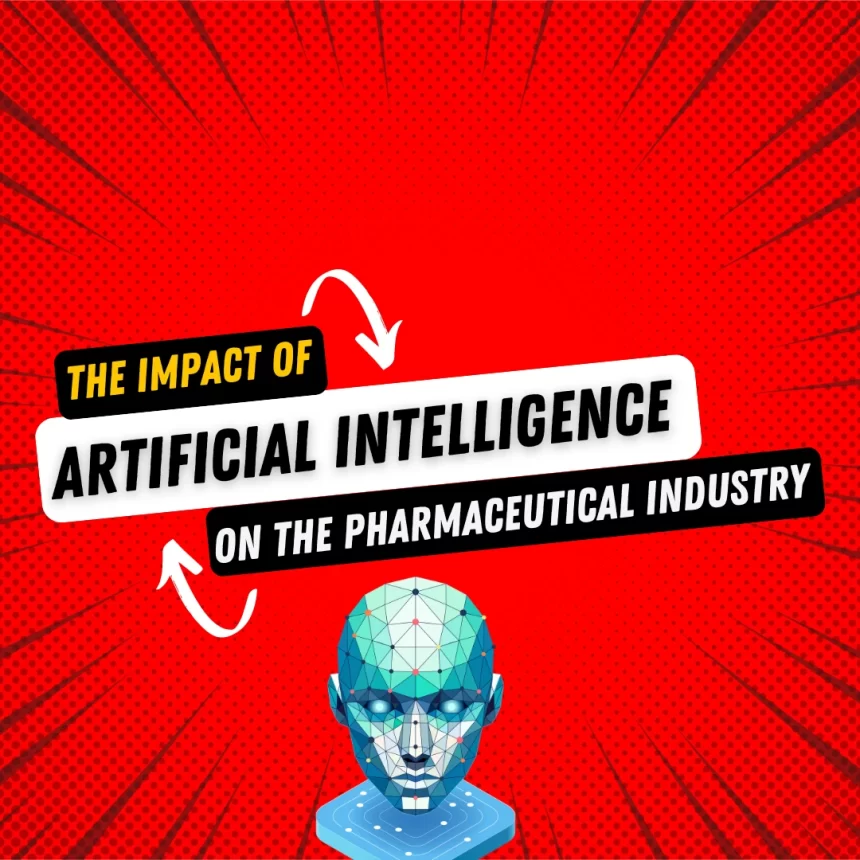Transforming Pharma: The Impact of Artificial Intelligence on the Pharmaceutical Industry


Introduction to AI in Pharmaceuticals
The pharmaceutical industry is an essential dedicated to the creation and delivery of medications that improve health outcomes across the globe. With processes that range from drug discovery to manufacturing and distribution, the industry is complex and challenging.
Key Components and Processes:
- Research and Development (R&D): This involves extensive lab work to identify new compounds that can be developed into drugs.
- Clinical Trials: Testing new drugs on human subjects to assess safety and efficacy.
- Manufacturing: Producing medications at large scales while ensuring quality.
- Regulatory Affairs: Navigating the laws and guidelines that govern drug approval and safety.
Current Challenges Faced by the Industry:
Pharmaceutical companies often grapple with high costs, long timelines, and stringent regulations. The need for innovation fosters an ever-growing demand for cutting-edge technology.
The Role of Technology in Pharma:
Technology has become integral in helping companies streamline operations, boost efficiency, and ultimately deliver better patient outcomes.
Definition of Artificial Intelligence
Artificial Intelligence, or AI, refers to the simulation of human intelligence in machines, allowing them to perform tasks that typically require human cognition.
What Constitutes AI?
AI can take many forms, from algorithms that analyze data to machine learning models that can improve over time.
Different Types of AI in Use:
- Machine Learning: Systems that learn and adapt based on data inputs.
- Natural Language Processing: Teaching machines to understand and interpret human language.
- Robotics: Automating tasks in manufacturing and operations.
Historical Context: AI in Healthcare:
AI isn’t new to healthcare. Its roots can be traced back several decades, but recent advancements have made its application in pharmaceuticals more practical and impactful.
Purpose of the Article
This article aims to unveil the transformative power of AI in the pharmaceutical industry.
Scope of AI Applications in Pharma:
We will explore various ways AI is reshaping drug discovery, clinical trials, manufacturing, and patient care.
Importance of AI in Modern Drug Development:
As processes become more sophisticated, leveraging AI helps enhance efficiency, reduce costs, and foster innovation.
Goals: Inform and Educate:
Our mission is to provide a comprehensive overview of these advancements and encourage ongoing discussions around AI’s potential benefits.
AI in Drug Discovery and Development
Acceleration of Drug Discovery
AI significantly speeds up the drug discovery process, making it less time-consuming and more efficient.
Predictive Modeling for Target Identification:
Using historical data, AI algorithms can identify potential drug targets more quickly than traditional methods.
High-Throughput Screening and Automation:
AI can analyze vast amounts of chemical compounds to determine which are most likely to succeed, while automation offers speedier results.
Case Studies of Successful AI Applications:
Notable examples include companies like Atomwise, which used AI to discover treatments for diseases like Ebola in a fraction of the time a traditional approach would take.
Optimization of Clinical Trials
AI helps streamline the complex task of conducting clinical trials, improving outcomes and reducing costs.
Patient Recruitment and Selection:
AI can analyze patient data to identify the most suitable candidates for trials, ensuring diverse and appropriate representation.
Trial Design and Simulation:
Using AI-driven simulations, researchers can model different trial scenarios, leading to more effective designs upfront.
Data Monitoring and Predictive Analytics:
AI-powered systems can monitor ongoing trials for abnormalities in real-time, ensuring participant safety and data integrity.
Challenges and Limitations
While AI offers incredible potential, there are challenges that need addressing.
Data Quality and Integrity Issues:
For AI algorithms to work effectively, they require high-quality, reliable data, often a challenge in the pharmaceutical sector.
Regulatory Compliance and Approval Processes:
Navigating the complex web of regulations can be daunting, especially with the rapid pace of AI development.
Integration with Existing Systems:
Many companies face hurdles when attempting to incorporate new AI technologies into their existing workflows.
AI in Personalization and Patient Care
Tailoring Treatments to Individual Needs
Personalized medicine is becoming increasingly viable through AI technologies.
Pharmacogenomics and Personalized Medicine:
AI can help identify which drugs work best for specific genetic profiles, personalizing treatment plans for better outcomes.
AI-Driven Drug Selection Algorithms:
These algorithms analyze vast datasets to suggest the most effective medications for individual patients.
Success Stories in Personalized Therapies:
Case studies, like those seen with CAR-T therapy, showcase the successful application of personalized approaches made possible through AI.
Improving Patient Engagement and Adherence
AI is revolutionizing how patients engage with their healthcare providers.
AI Chatbots for Patient Communication:
AI chatbots offer 24/7 support for patients, answering questions and guiding them through treatment plans.
Wearable Tech and Mobile Health Apps:
Wearables can track patient health data and provide valuable insights for both patients and doctors, enhancing engagement.
Monitoring Patient Feedback and Outcomes:
AI’s capability to analyze user-reported outcomes can help refine therapies and improve overall health delivery.
Ethical Considerations
As AI continues to grow, ethical questions must be addressed to protect patients.
Data Privacy and Security Issues:
With AI systems collecting vast amounts of sensitive patient data, ensuring data privacy is paramount.
Informed Consent and Patient Trust:
Patients must understand how AI is being utilized in their care, which calls for transparency in its applications.
AI Bias and Fairness in Treatment Access:
Addressing potential biases in AI systems is essential to ensure equitable access to treatments for all patients.


